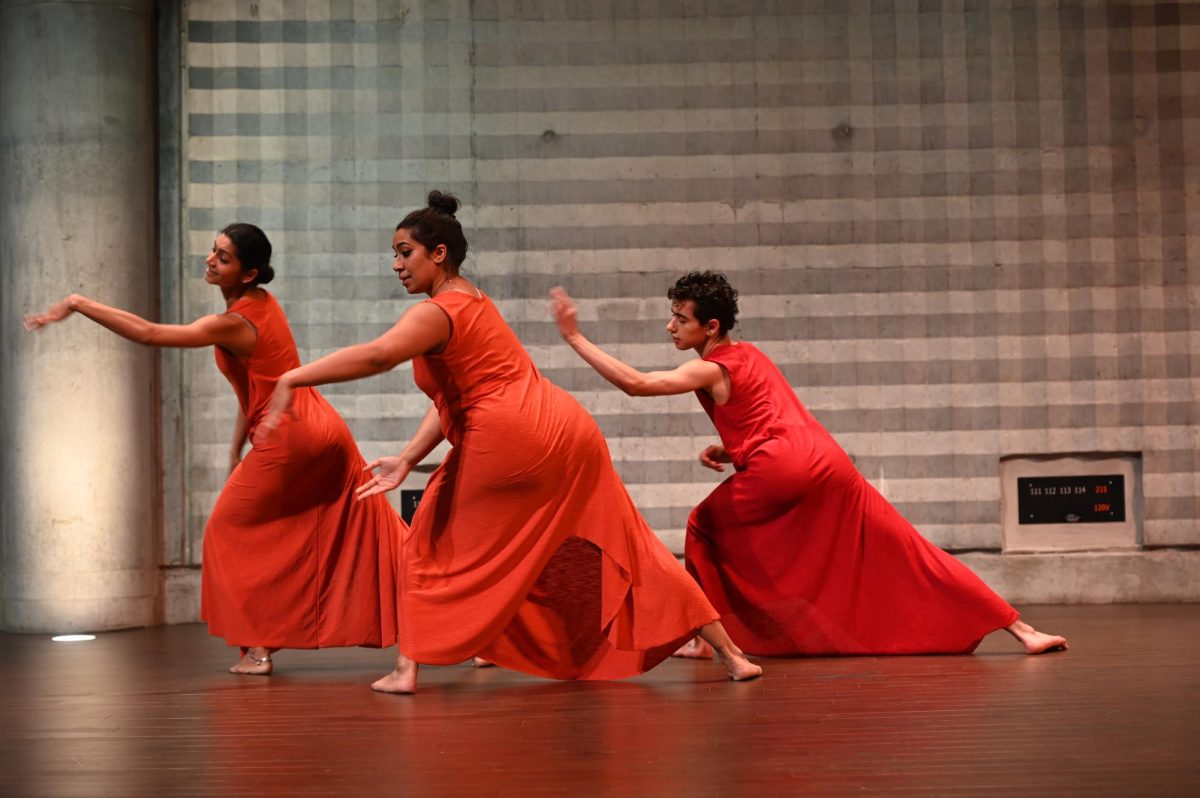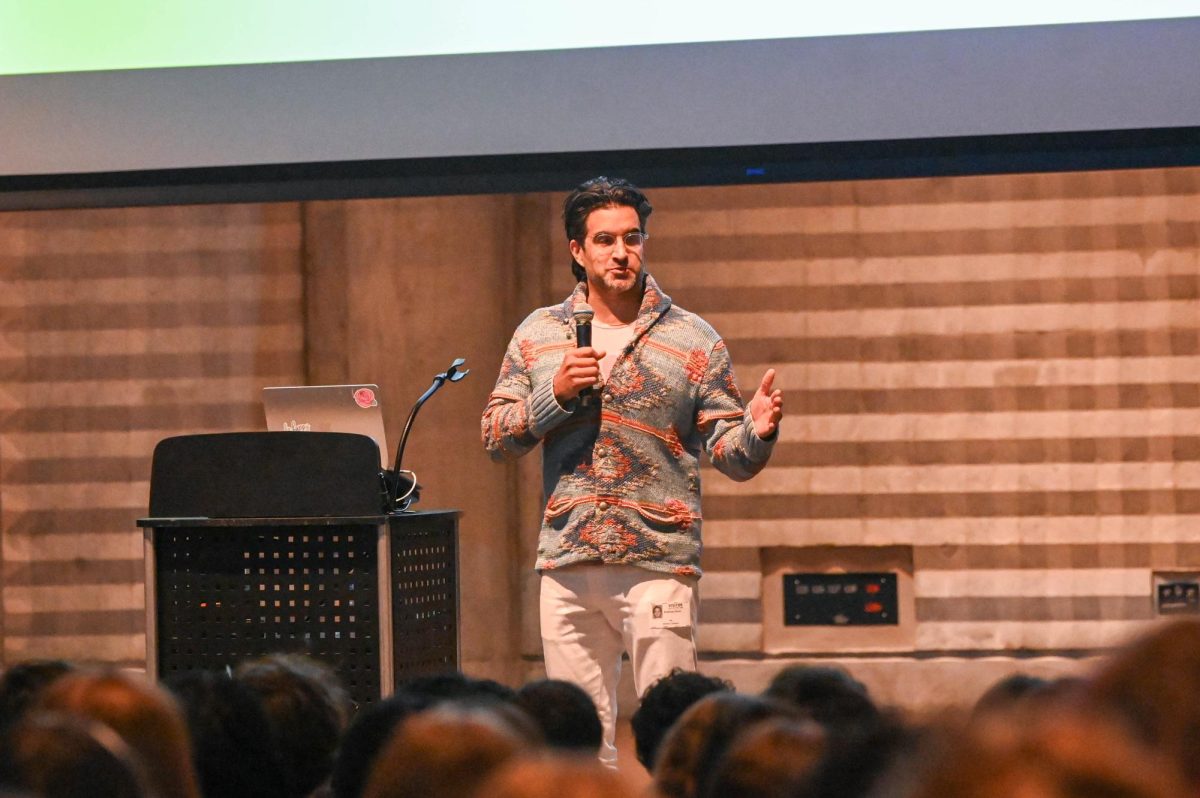With the theme of “Exploring the Diversity of the Asian American Experience Through a Contemporary Lens,” the Asian Students’ Association held its first-ever assembly on Feb. 8 to celebrate the cultural diversity of Asia and highlight the Asian American experience in current times.
ASA president Katie Sasamoto-Kurisu and vice president Jacob Liu welcomed students with an overview of the assembly’s events, starting with a piece of historical context. Katie is an editor-in-chief of the Midway but was not involved with the reporting of this story.
The screen showed an image of a crude caricature from 1899, titled “The White Man’s Burden.” It depicted the United States and Britain carrying people of color up a mountain, toward a statue labeled Civilization. The drawings of the foreign ethnic groups feature racist and exaggerated features.
Following the analysis and explanation of the illustration, they jumped the timeline to ahead a century, to discuss a current social media trend, RCTA. RCTA, which stands for Race Change to Asian, is an internet phenomenon that centers around people without Asian heritage attempting to identify as Asian.
“These people describe themselves as owning stereotypical Asian traits, such as speaking in Asian languages, eating Asian foods, watching Asian shows and listening to Asian music,” Jacob said as he described screenshots from RCTA social media videos. “This is problematic because these traits are ones that were once discriminated against by mainstream society.”
They stressed the importance of recognizing the difference between appreciating someone’s culture vs. appropriating it and being insensitive to their lived experiences. To further highlight the significance of appreciation, they discussed the complexity of Asia. Composed of 48 countries, each with its own customs and ethnic groups, the continent’s diversity is underappreciated.
To connect the movement for change to America, Katie gave the audience a request about the term AAPI, which stands for Asian American Pacific Islander.
“In recent years, many social groups and Asian-oriented organizations have scrutinized this term for its lack of inclusion, and are trying to seek ways for improvement,” Katie said. “In ASA, we’ve adopted the new term these groups created, APIDA which stands for Asia Pacific Islander Desi American, in an effort to be more representative and comprehensive of Asian identities.”
They then invited three performers from the local dance group Ishti Collective onto the stage. The group works to portray South Asian performance art through a variety of mediums, such as dance, music and storytelling. They first performed a rhythmic dance and then walked the audience through an interactive chant as the performers danced.
Guest speaker Josina Morita, Cook County Commissioner of the 13th District and the first Asian American woman to serve on the Cook County Board, shared her experience with discrimination based on her identity despite growing up in a family that has been in America for over 100 years.
“There’s a saying that you are either at the table or you’re on the menu. For a very long time, Asian Americans have been on the menu. People have made decisions about Asian Americans without Asian Americans at the table,” Ms. Morita said. “And many of you who come from different communities often, probably, can say the same. And so, having a government that looks like us and includes everyone is important. It’s important to have a government that works for everyone.”
In a video, ninth graders who identify as Asian American discussed their experiences inside and outside of Lab.
The assembly ended with a final request from Katie.
“On behalf of all of the affinity groups, we want to ask one thing of you: Please be kind to one another, because you never know what somebody else is going through,” she said. “Lab’s mission statement highlights exhibiting kindness and honoring diversity, and we all need to work together to uphold that.”





















































